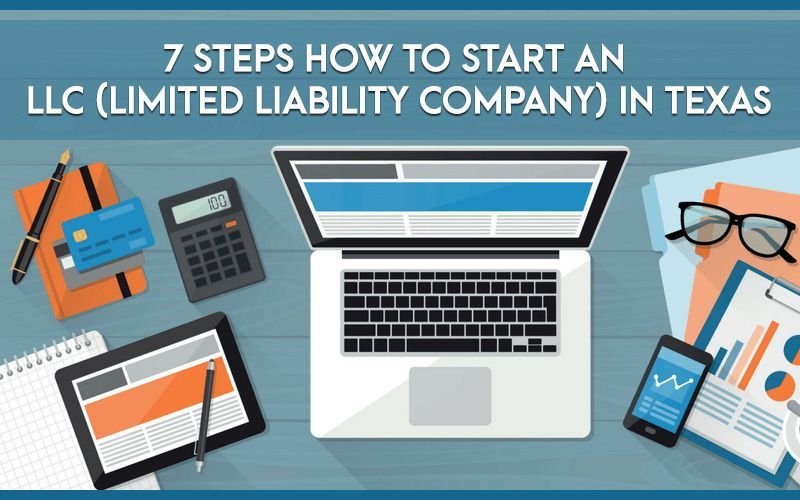What is LLC (Limited Liability Company)
An LLC is an acronym for a limited liability company, which is among four enterprise administrative networks in America. This type of company offers its proprietor’s obligation security against management activities and provides loans similar to a business. However, an LLC’s leadership can operate as an organization or alliance for better administration control and fiscal, and economic reasons.
Characteristics of an LLC
The managers of an LLC are called members. They can include entrepreneurs, foreign enterprises, and companies as well as LLCs. One or an unlimited number of representatives can own an LLC. Another facet of an LLC is its suppleness to transform into an incorporated enterprise structure.
This is done when the company’s LLC classification is no longer suitable due to its organizational structure and the need to diversify and have stockholders spend capital. And conversely, a company can turn into an LLC.
Pros of LLC
Among the perks of an LLC is its leadership adaptability. It can be set up and operated as a coalition. Being operated as a company, an LLC can choose a chairperson, governing body, and follow a big corporation’s footsteps along with board meetings and member sessions.
Furthermore, they can decide to drop the proceedings completely, which are mandated by normal companies.
To constitute an LLC, you’ll require to file documentation with the region where your firm is situated. Each state has its regulations and protocols, but there are many measures you’ll need to adopt to get your LLC operational, regardless of where you are residing.
Steps on How to Start Limited Liability Company (LLC) in Texas
Below are seven steps that are important in starting a Limited liability company in any state of the USA including, Texas
1. Decide a Name for Your LLC
Most states don’t permit two separate enterprises or institutions to have identical names. So you cannot have the same name as another LLC. Despite the fact that they’re based in separate areas. Several states also limit entities from including particular phrases in their names.
You can look up available firm names online in multiple states to ascertain either your suggested LLC name is usable. It would help if you also verified name accessibility in the state where you are starting your LLC before filing the documentation.
In addition to state law limitations, it’s smart to review whether other related companies in your territory adopt the same name or a similar name. Picking a particular word can assist you in averting ambiguousness and trademark violation allegations. You might also need to ponder if a domain name is suitable that fits your trade name.
2. Booking a Name
If the LLC name you’ve chosen is vacant, but you will not deposit your LLC records right now, you should book the name. Almost every state gives the option to reserve a name by filing a paper by paying a small fee. The duration of the booking period, filing costs, and service guidelines differ area wise.
3. Choose a Registered Agent
Nearly every state asks its LLCs to name a designated agent, which is also occasionally called a legal agent. A licensed operative is responsible for cases, writs, and other official records and delivers them to the pertinent member at the LLC.
Most states permit anybody who is a state citizen over age 18 to serve as a certified officer—including a member or official of the firm. Some organizations provide certified agent assistance for a price.
4. Develop an LLC Operating Contract
An LLC working arrangement is the plan of action that specifies the functioning of the LLC. It defines such matters as the associates’ proprietary stakes and polling rights, how earnings and losses will be calculated, and how sessions will be convened.
How the operation will be managed, and the employees’ rights if one of them disappears or departs the company- and the way the firm will be disbanded if it runs out of business.
The operating accord generally isn’t listed with the state and may not be needed as per regional states rules. However, it is essential for business owners to determine their privileges and obligations and lessen forthcoming differences.
5. File Organization Documents with the State
Every region has its own form and procedure for establishing an LLC. Briefly, you must provide the following information and list the information in documents such as:
- The name and agency address of the LLC
- The time of its presence, if not permanent
- The identity and other personal details of the licensed operative
- The role for which the LLC was established
- The documentation usually must be signed by the individual constituting the LLC, and in many states of the US, the licensed agent also have to sign
In many USA areas, you’ll file LLC formation papers with the secretary of state, but some states have an alternative office that oversees trade filings. All states levy a documentation charge, but the LLC cost differs from one state to another.
6. Obtain a Certificate from the State
After the LLC’s creation records are filed and accepted, the state authorities will provide credentials or other forms that confirm that your LLC is officially formed. Once you’ve got the declaration, you can handle business issues like getting a tax Identity number and enterprise permits and creating a company bank account.
7. Listing Business outside Your State (optional)
If your LLC has trade ties in several areas or states, you are required to list to conduct business in other states. To do this, you will need to fill out and deposit documentation that’s the same as the documentation you submitted when you established your LLC. You’ll also require a certified agent in each state where you are permitted to do work.
LLC VS INC: Which is better?
Deciding whether a corporation or an LLC is the more suitable choice for a business can be tricky. It rests on the kind of organization, the sources of funding, the proprietors’ short and long-term objectives, and countless other things.
Making the correct selection also demands a firm comprehension of what a company is and what an LLC is, its similarity, and how they vary. Taxes is one domain in which they are different. Though, there are sizable non-tax discrepancies as well. Business owners and their consultants should be aware of these variations before making a decision.







